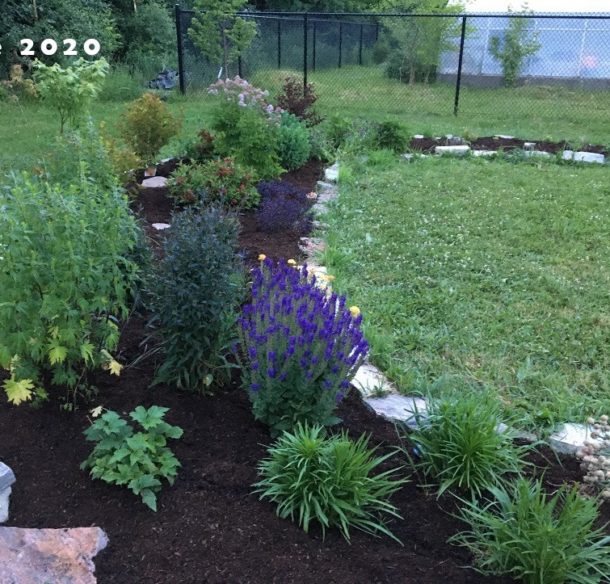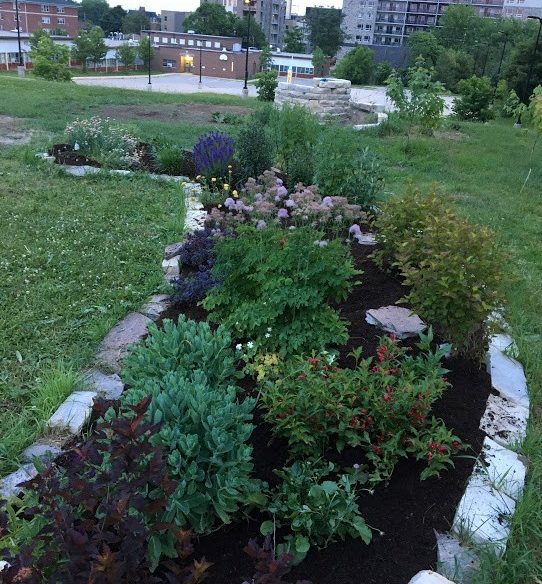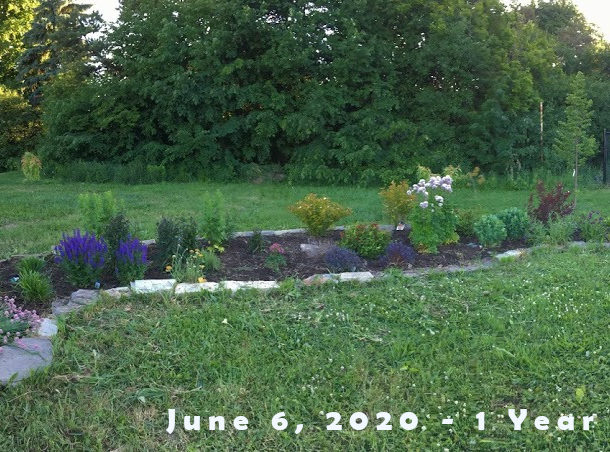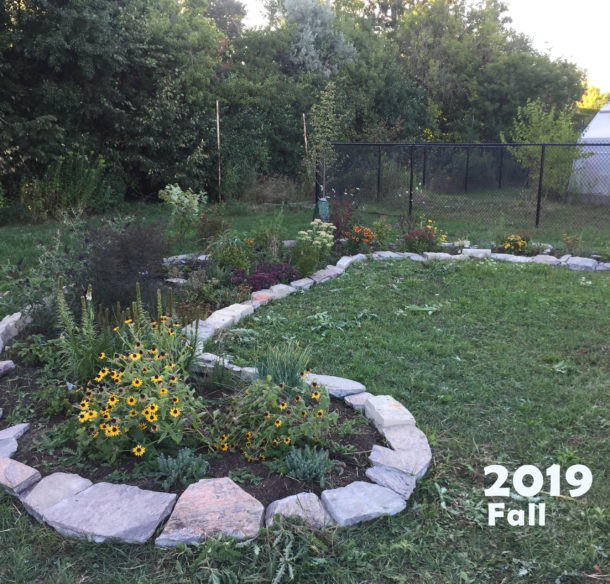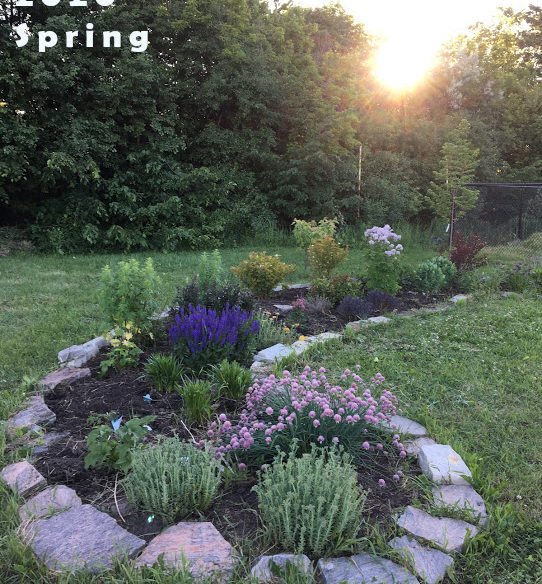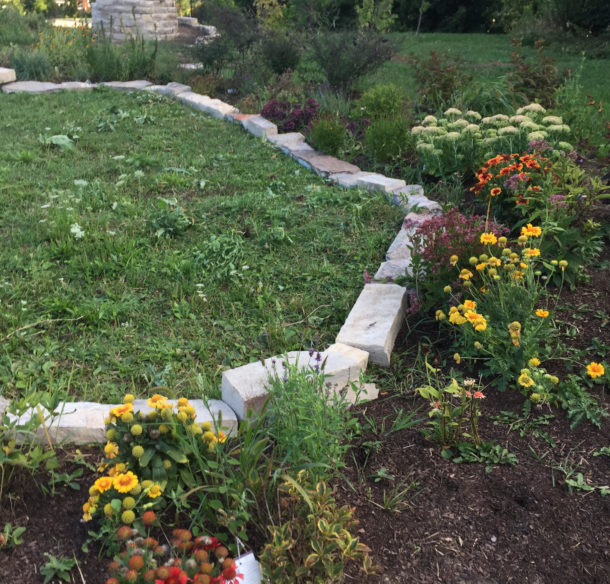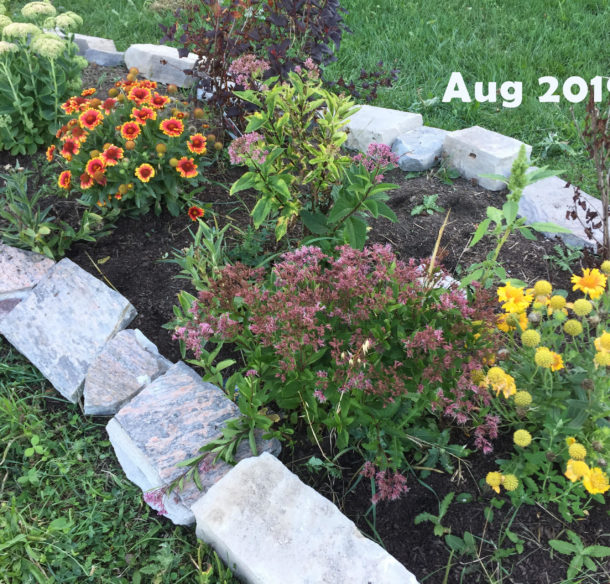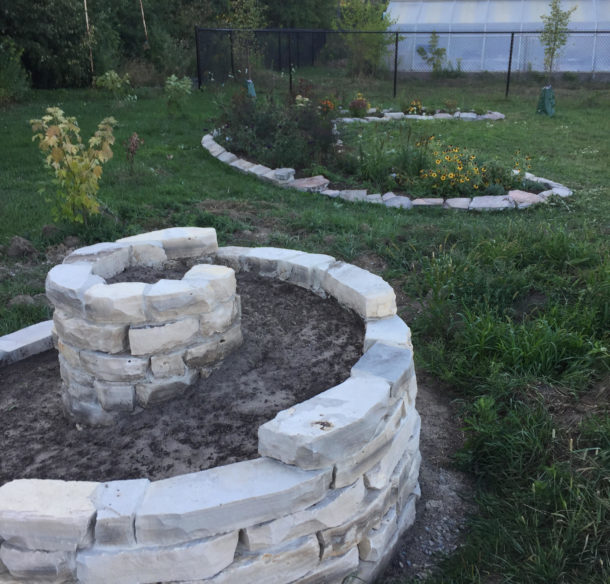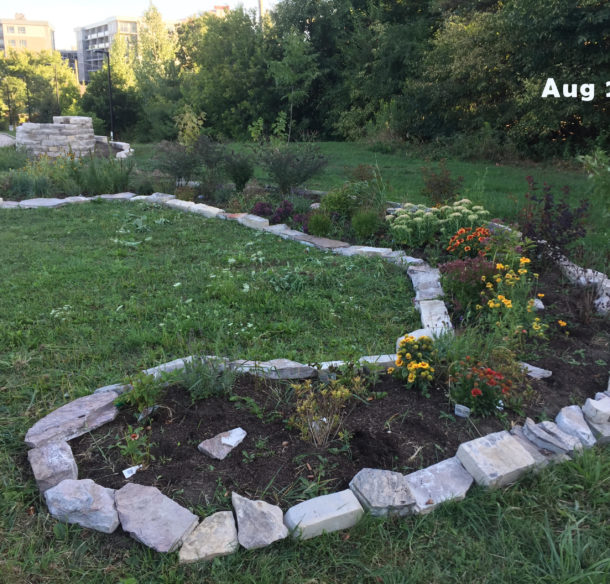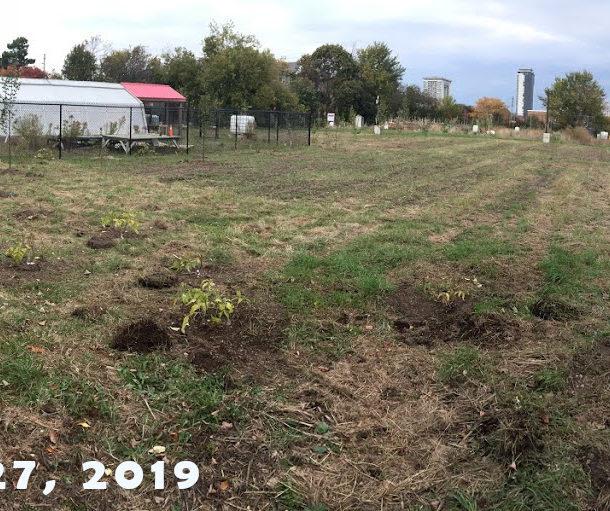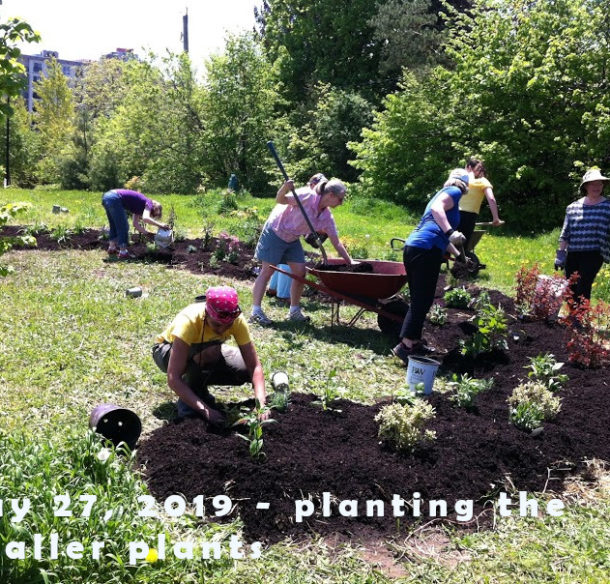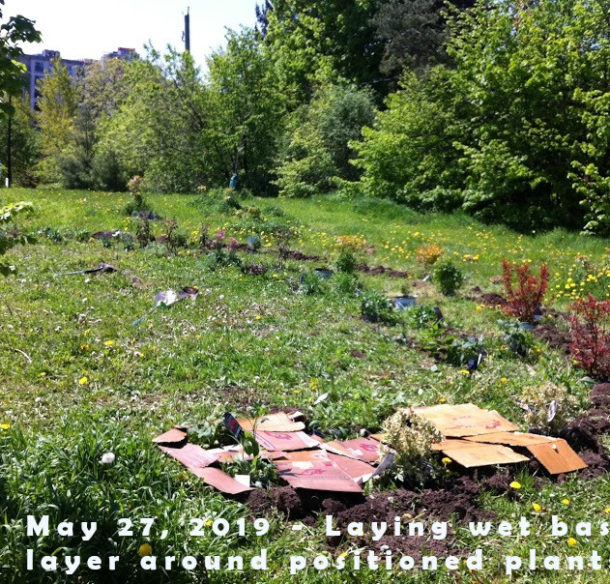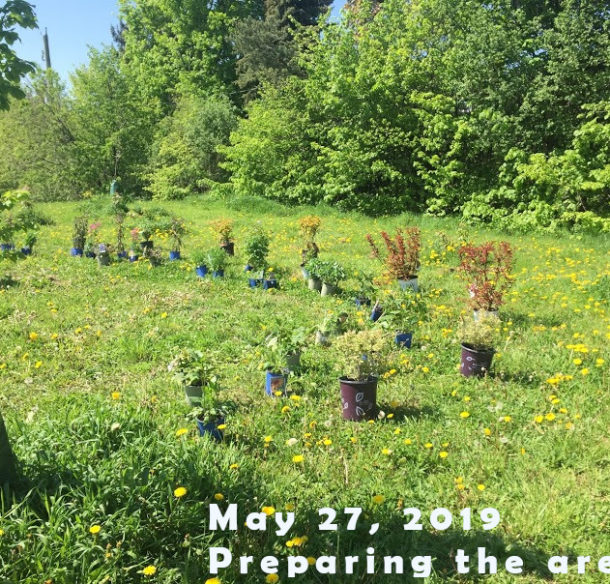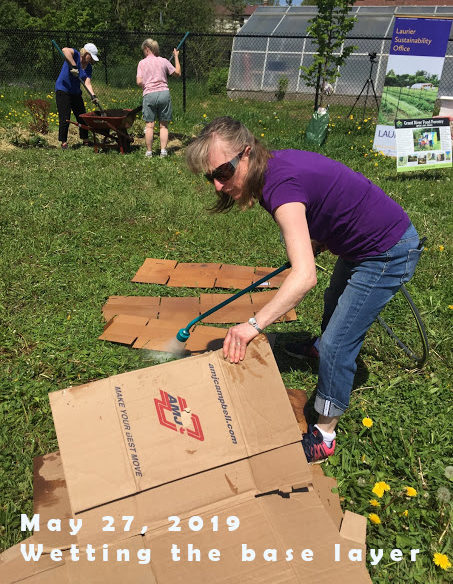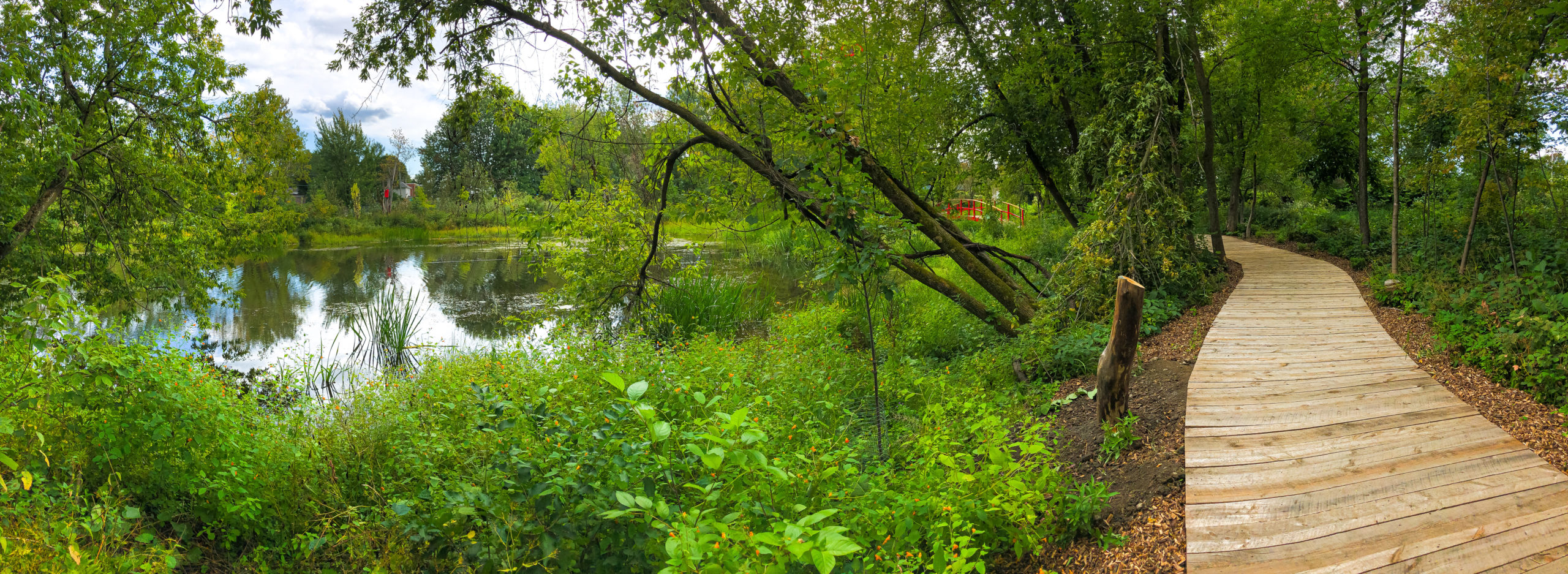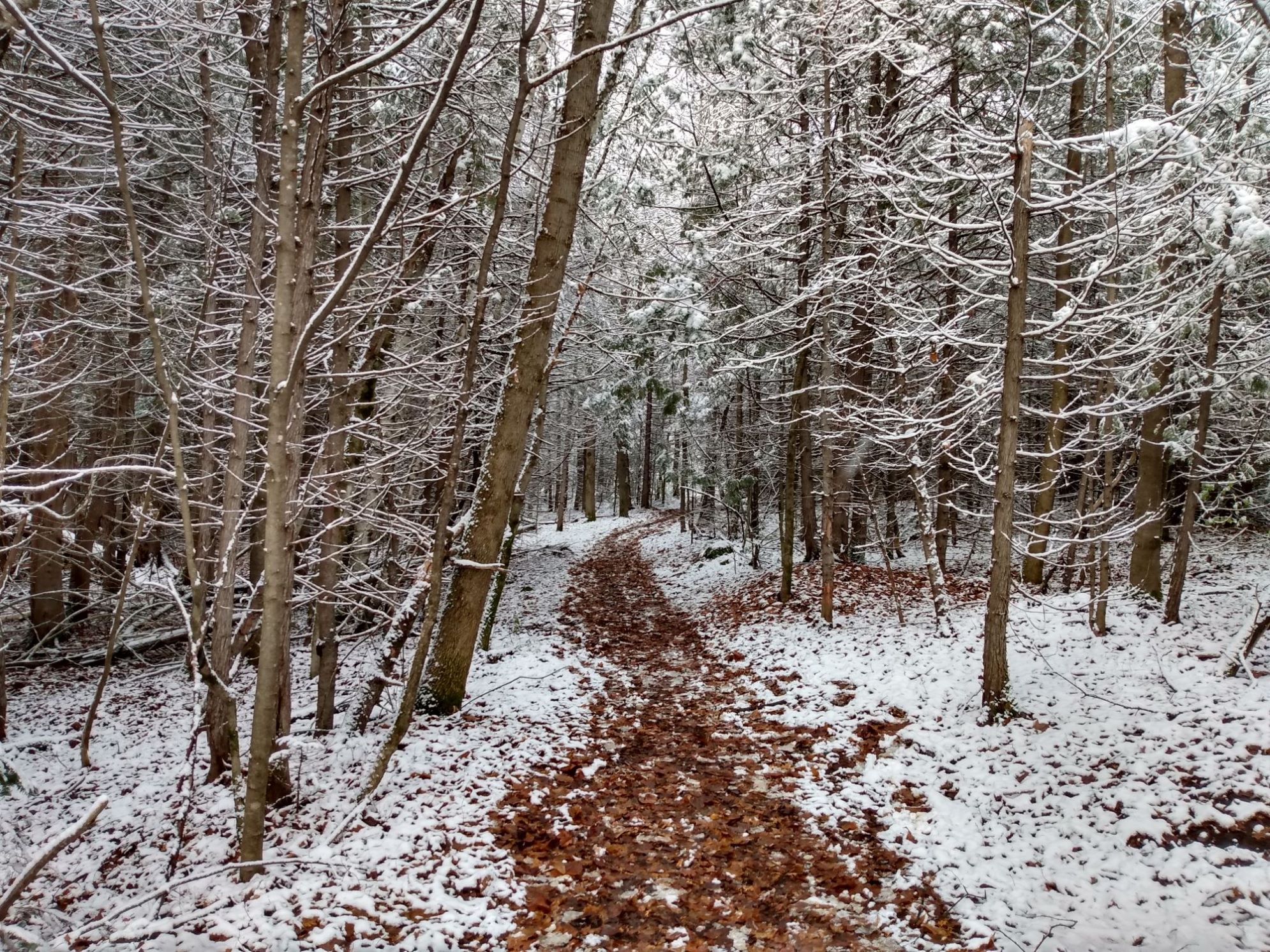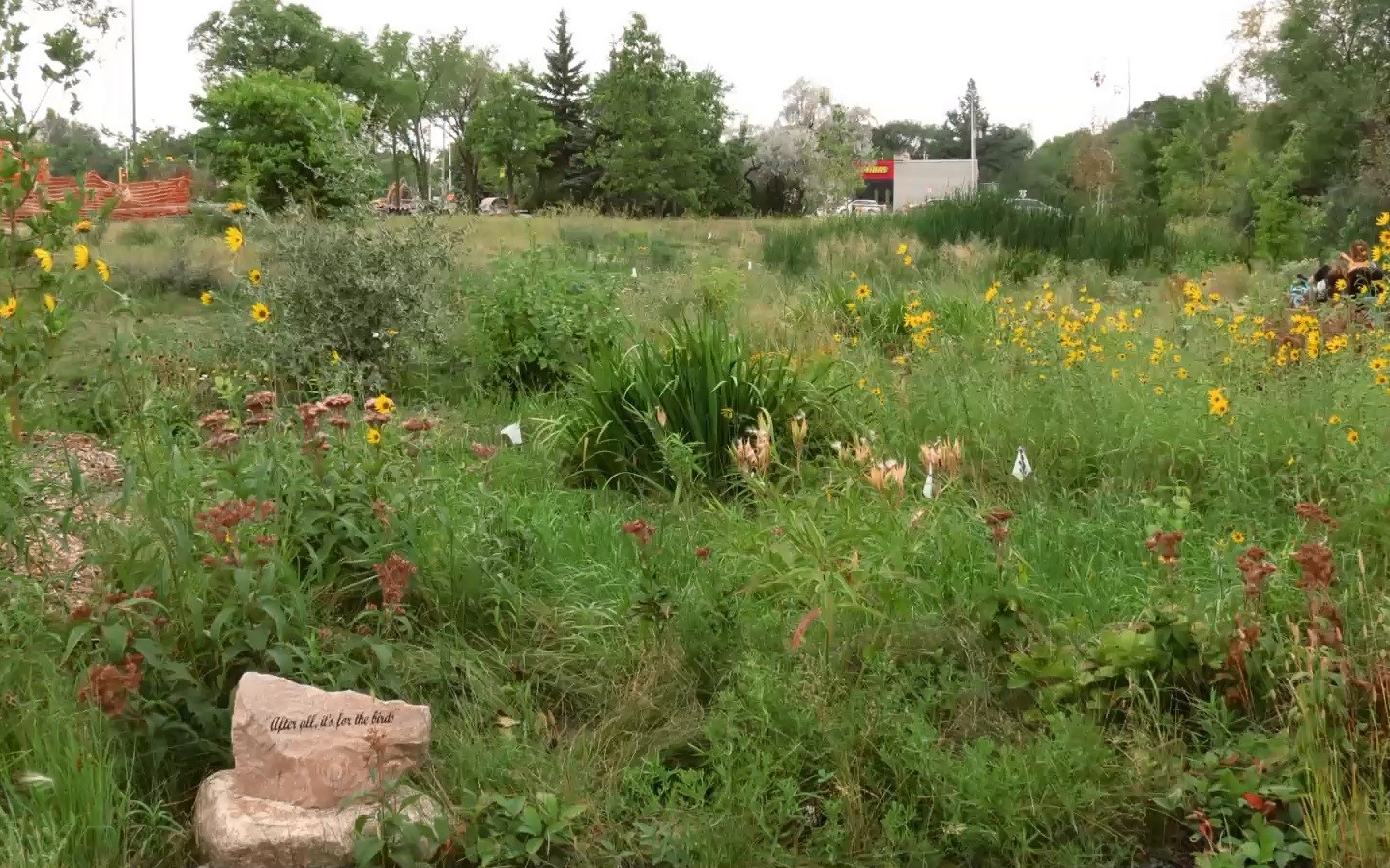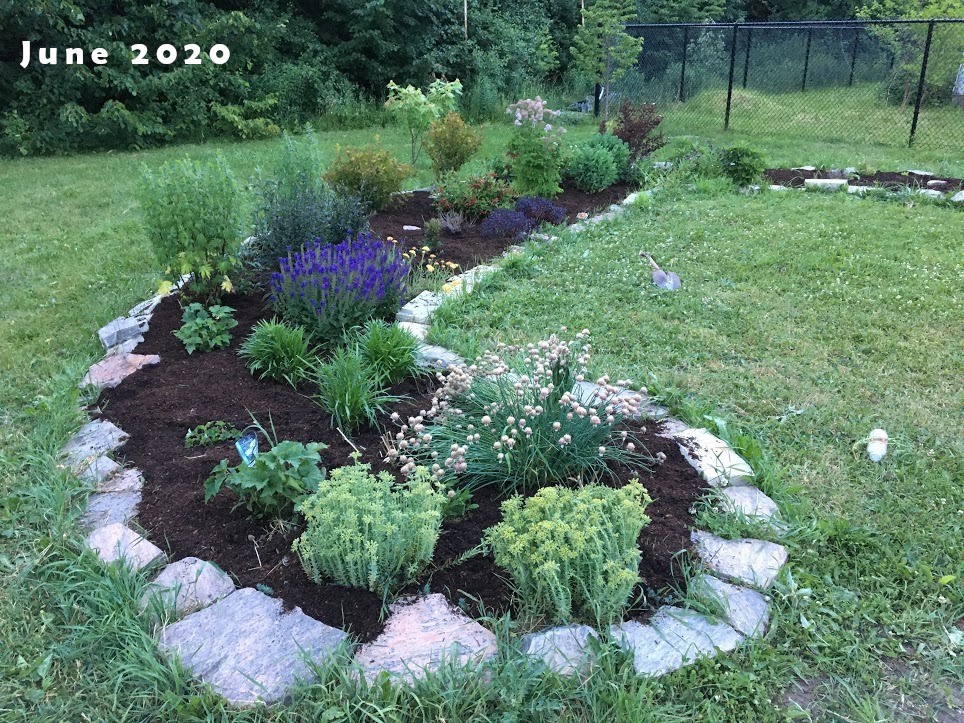
Building for Bees
Building for Bees
The Building for bees project is a 224 square foot pollinator garden, that was part of the EnviroSeries: Building for Bees workshops that took place over the Spring-Summer of 2019 at Wilfrid Laurier University, generously funded by the WWF-Canada’s Go Wild grants. Wilfrid Laurier University is proud to be a Bee Campus and continues to support and promote a diversity of pollinators on campus, as outlined in their 5-year Sustainability Action Plan. The site of the pollinator garden is also home to the region’s first designated pollinator spiral as well as home to many important community initiatives including community and market gardens. You can read more about those here.
The goal of the Building for Bees projects is to protect bees by providing a dedicated space for pollinators to nest and forage for food. Ground nesting bees will be protected from tilling and other disruptions that can damage or destroy nest sites. It also provides people with a hands-on way to learn about native pollinators. The first step to protecting our 400+ species of native bees is to make people aware of these species through interactive community engagement such as this event. Planting a Pollinator Garden goes beyond the immediate space it is planted in by demonstrating how people can incorporate pollinator friendly, native, perennial, plants to their own gardens and it gives them the tools they need to incorporate these kinds of bee-friendly activities in their homes, school yards, community gardens, etc.
The lasagna style of garden construction creates healthy, non-compact soil that helps to feed worms and reduce water usage. It is a way to teach people that gardens can be good for both people and pollinators! Targeted species were all pollinating insects in South-Western Ontario (bees, flies, butterflies, beetles, etc.) with a particular focus on native bee species. This is important because the flowering plants that were selected were selected for a variety of flower colours, sizes, and blooming times.

